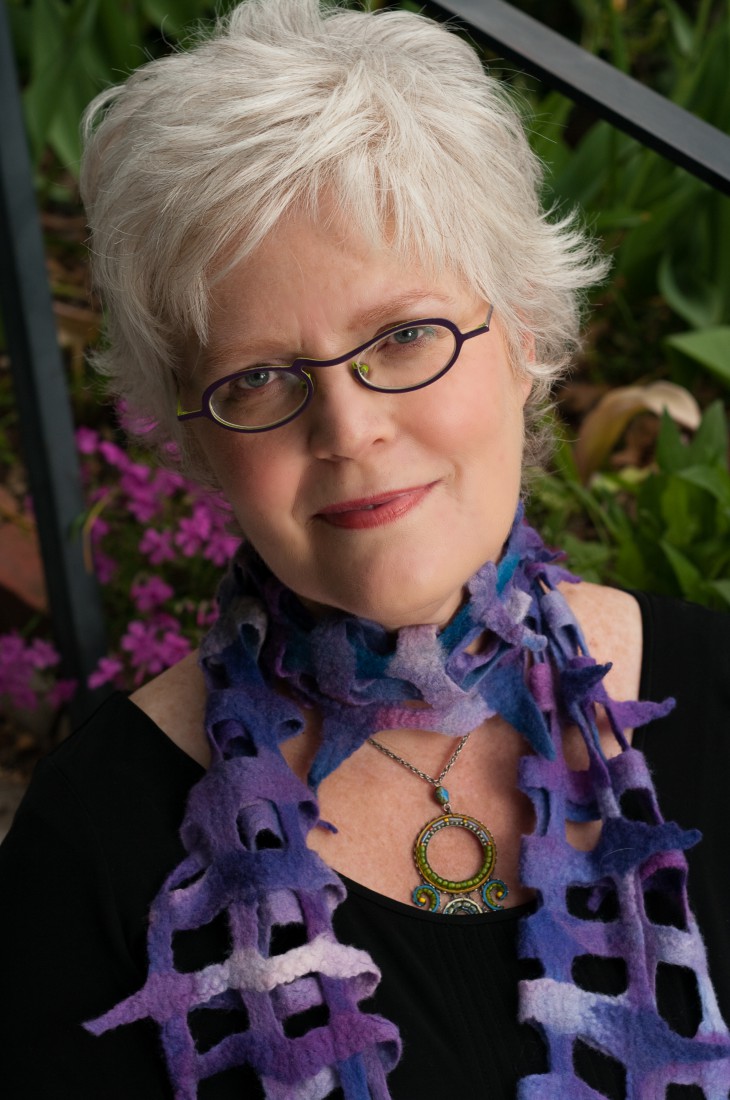Asheville Wordfest expands its literary reach and community focus
Festivals are meant to be celebrations — hence etymological inclusion of the root word “festive.” But Asheville Wordfest, now in its seventh year, sets its sights beyond mere merriment. “It’s a reflection of what Asheville is, what matters to us, what we love,” says event founder and organizer Laura Hope-Gill. “It’s about the whole community, the story of our community.”
Wordfest — which takes place at Asheville’s Lenoir-Rhyne University branch on Montford Avenue, from Friday, May 2 through Sunday, May 4 — kicks off with a special acknowledgement of that community and one of its most ardent supporters: Laurey Masterton, the local chef, writer and activist, who passed away in February. This year’s Wordfest is dedicated to her memory. A Friday night session titled “Embrace What Is, Honor What Was, Love What Will Be” will feature a few readings of Masterton’s writings as well as The Geography of Loss, a new book by local author Patti Digh.
“Narrative,” Hope-Gill says, “[is] a form of knowledge, a way of perceiving the world through story — our own and everyone else’s.” It’s this connection that she attributes to Masterton’s love of community, and ultimately, to the art of storytelling. “Every community is bonded by stories, so that’s the best substance for bringing them together.”
Last year’s Wordfest saw the inclusion of storytelling. This year, the event — which originally focused on poetry — expands even further to envelop fiction and longer forms of both narrative writing and verse. Stories presented throughout the weekend range from a microbiologist’s view of life on Earth and meditations on tech startups, to presentations about autism and afternoon sessions on the medicinal benefits of narrative in the fields of physiology and psychology. As Hope-Gill sees it, “Wordfest is more a listening device than a teaching device.”
Poetry is still well-represented. The literary festival features poetry recitations, theory and practice workshops, oral histories and musical performances by an array of area and regional academics and professionals, writers and songwriters — not to mention the poets. Presenters include Quraysh Ali Lansana, author of They Shall Run: Harriet Tubman Poems and editor of Glencoe/McGraw-Hill’s African American Literature Reader; and Aimee Nezhukumatathil, a professor whose multiple accolades include the Global Filipino Award.
“Wordfest started as an attempt to get poetry back on the scene after a decadeslong quiet,” says Hope-Gill. Now that that scene is flourishing, she says, the festival is beginning to organically move into new territory. The expansion is all about greater accessibility, says the event founder. Poetry isn’t always the easiest literary form to casually grasp, much less dive into. And literary festivals can often intimidate audiences by bombarding them with formulaic, listlike reasons (rave reviews, commanding resumes, etc.) for appreciating an author’s work.
Not so at Wordfest. The weekend is less about accolades than it is about connecting to the audience. By including storytelling and narrative fiction, Hope-Gill and the featured poets, writers and presenters (including storyteller Connie Regan-Blake; artist, curator and peace activist Kiran Singh Sirah; and filmmaker Lisa Smith Bruer) aim to reach a broader audience and ultimately enhance the appreciation of verse. That’s to say, the festival has something for everyone. “If an attendee needs intellectual stimulation, they get it,” says Hope-Gill. “If they need some soul healing, as poetry has been known to deliver for ages, they get it. If they need conversation about current trends in literature and sociology and politics, they get it.”
She adds, “This festival is about the writers inviting us into their work.”
WHAT
Asheville Wordfest, ashevillewordfest.org
WHERE
Asheville branch of Lenoir-Rhyne University, 36 Montford Ave.
WHEN
Friday, May 2-Sunday, May 4. See website for schedule. Free.




Before you comment
The comments section is here to provide a platform for civil dialogue on the issues we face together as a local community. Xpress is committed to offering this platform for all voices, but when the tone of the discussion gets nasty or strays off topic, we believe many people choose not to participate. Xpress editors are determined to moderate comments to ensure a constructive interchange is maintained. All comments judged not to be in keeping with the spirit of civil discourse will be removed and repeat violators will be banned. See here for our terms of service. Thank you for being part of this effort to promote respectful discussion.